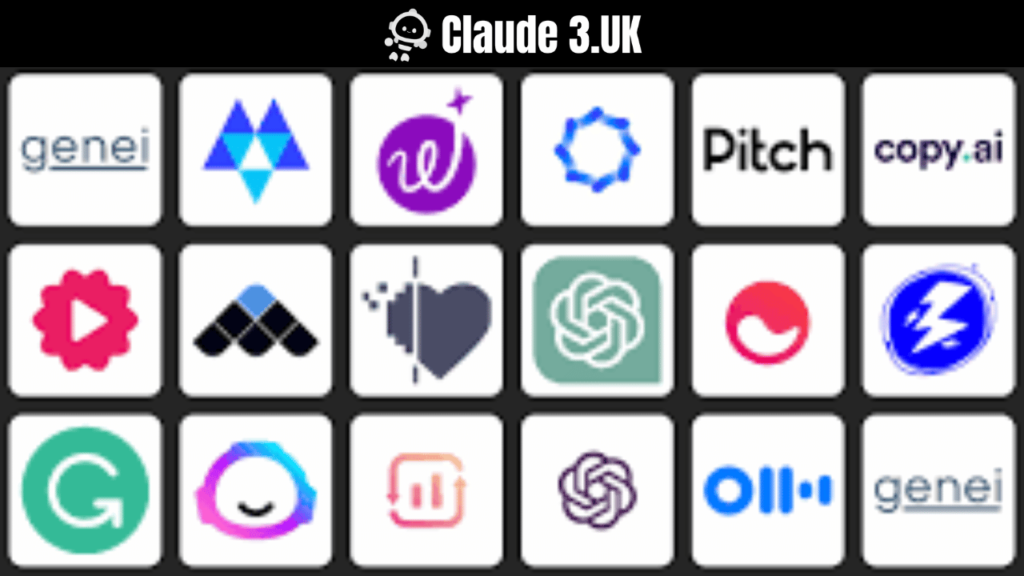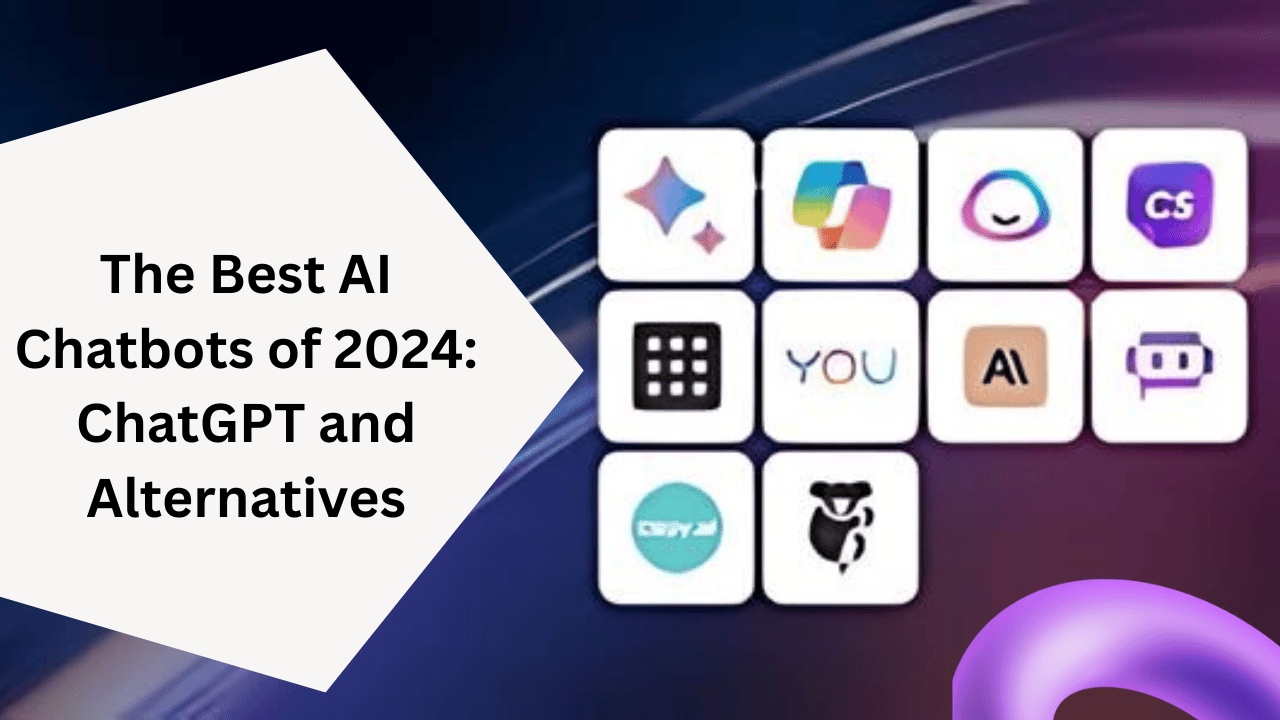Introduction
Artificial intelligence has revolutionized the way we interact with technology, and chatbots have become one of the most prominent applications of AI. In 2024, several AI chatbots stand out for their advanced capabilities and diverse applications. This article explores the best chatbots of 2024, with a detailed look at OpenAI’s ChatGPT and its top alternatives.
ChatGPT: Leading the Pack
Overview
ChatGPT, developed by OpenAI, has become synonymous with chatbots. Since its initial release, ChatGPT has continuously evolved, incorporating the latest advancements in natural language processing (NLP) to offer an unparalleled conversational experience.
Core Features
Advanced NLP
ChatGPT leverages the GPT-4 architecture, which provides an exceptional understanding of context and nuance in conversations. It can generate coherent and contextually relevant responses, making interactions feel more natural and human-like.
Multilingual Capabilities
ChatGPT supports multiple languages, allowing it to cater to a global audience. This multilingual support is particularly beneficial for businesses operating in diverse markets.
Customization and Integration
OpenAI offers extensive customization options for ChatGPT, enabling businesses to tailor the chatbot to their specific needs. Additionally, ChatGPT can be integrated into various platforms and applications through APIs, enhancing its versatility.
Use Cases
Customer Support
ChatGPT excels in customer support, providing instant responses to customer inquiries, troubleshooting issues, and guiding users through complex processes.
Content Creation
Businesses use ChatGPT for content generation, including writing articles, creating marketing copy, and drafting emails. Its ability to produce high-quality content saves time and resources.
Personal Assistants
As a personal assistant, ChatGPT helps users manage their schedules, set reminders, and answer general knowledge questions, improving productivity and convenience.
Ethical Considerations
OpenAI has implemented safeguards to ensure responsible use of ChatGPT. Measures include filtering inappropriate content, providing transparency in AI interactions, and addressing biases in the training data.
Alternatives to ChatGPT
While ChatGPT is a leading chatbot, several alternatives offer unique features and capabilities that cater to different needs and preferences.
1. Google Bard
Overview
Google Bard is an chatbot developed by Google, designed to assist users with various tasks through natural language understanding and generation.
Core Features
Integration with Google Services
Google Bard seamlessly integrates with Google’s suite of services, such as Google Search, Google Calendar, and Google Maps. This integration enhances its utility for tasks involving information retrieval and organization.
Contextual Understanding
Bard excels in contextual understanding, allowing it to maintain coherent conversations over extended interactions. This feature is crucial for complex inquiries and tasks.
Voice Interaction
Google Bard supports voice interaction, enabling users to converse with the chatbot using speech. This hands-free operation is particularly useful for on-the-go users.
Use Cases
Information Retrieval
Google Bard is adept at fetching information from the web, providing users with quick and accurate answers to their queries.
Task Management
Users can leverage Bard to manage tasks, set reminders, and organize their schedules, making it a valuable tool for personal productivity.
Smart Home Integration
With its integration into Google’s ecosystem, Bard can control smart home devices, enhancing convenience and automation in everyday life.
Ethical Considerations
Google prioritizes user privacy and data security, implementing strict policies to protect user information. Additionally, Google Bard is designed to comply with ethical Artificial Intelligence standards, including transparency and fairness.

2. Microsoft Azure Bot Service
Overview
Microsoft Azure Bot Service offers a comprehensive platform for building, deploying, and managing intelligent bots. It provides robust tools and frameworks for creating customized chatbots.
Core Features
Developer Tools
Azure Bot Service includes a rich set of developer tools, such as the Bot Framework SDK, which simplifies the process of building and deploying chatbots.
Integration with Microsoft Services
The service integrates seamlessly with Microsoft’s ecosystem, including Azure Cognitive Services, Office 365, and Microsoft Teams, providing extensive functionality.
Enterprise-Grade Security
Microsoft ensures enterprise-grade security for its bot service, making it suitable for businesses with stringent security and compliance requirements.
Use Cases
Customer Service Automation
Businesses use Azure Bot Service to automate customer service operations, reducing response times and enhancing customer satisfaction.
Internal Support
Enterprises deploy chatbots within their organizations to assist employees with IT support, HR queries, and other internal services.
E-commerce
E-commerce platforms leverage Azure Bot Service to provide personalized shopping experiences, including product recommendations and order tracking.
Ethical Considerations
Microsoft emphasizes responsible Artificial Intelligence practices, focusing on fairness, transparency, and accountability. The Azure Bot Service adheres to these principles, ensuring ethical deployment and use of AI.
3. IBM Watson Assistant
Overview
IBM Watson Assistant is a powerful chatbot designed to provide intelligent and personalized customer interactions. It combines with business process automation to deliver high-quality service.
Core Features
AI-Powered Insights
Watson Assistant utilizes AI to analyze and understand customer intent, enabling it to provide accurate and relevant responses.
Multi-Channel Support
The assistant supports multiple communication channels, including web, mobile, and voice, ensuring consistent user experiences across platforms.
Industry-Specific Solutions
IBM offers industry-specific solutions tailored to the unique needs of sectors such as healthcare, finance, and retail, enhancing the chatbot’s relevance and effectiveness.
Use Cases
Customer Engagement
Watson Assistant enhances customer engagement by providing personalized interactions and proactive support, improving customer loyalty and retention.
Process Automation
Businesses use Watson Assistant to automate routine processes, such as appointment scheduling and order processing, increasing efficiency and reducing operational costs.
Virtual Agents
Watson Assistant serves as a virtual agent for internal and external users, handling inquiries and tasks with high accuracy and reliability.
Ethical Considerations
IBM is committed to ethical AI, prioritizing transparency, fairness, and data privacy. Watson Assistant is designed to comply with these principles, ensuring responsible use and deployment.
4. Amazon Lex
Overview
Amazon Lex is a service for building conversational interfaces using voice and text. It powers Amazon Alexa and provides tools for creating sophisticated chatbots.
Core Features
Natural Language Understanding
Amazon Lex offers advanced natural language understanding capabilities, allowing it to interpret user input accurately and respond appropriately.
Seamless AWS Integration
Lex integrates seamlessly with other AWS services, such as Lambda and DynamoDB, enabling the creation of robust and scalable chatbots.
Voice and Text Support
Lex supports both voice and text interactions, providing flexibility in how users interact with the chatbot.
Use Cases
Customer Support
Businesses deploy Amazon Lex to enhance customer support operations, providing quick and accurate responses to customer inquiries.
Interactive Voice Response (IVR) Systems
Lex is used to build IVR systems that handle customer calls, offering automated responses and directing calls to the appropriate departments.
E-commerce Assistance
E-commerce platforms use Lex to offer personalized shopping assistance, including product recommendations and order status updates.
Ethical Considerations
Amazon focuses on user privacy and data security, implementing measures to protect user information. Amazon Lex adheres to ethical AI standards, ensuring responsible and fair use.
5. Rasa
Overview
Rasa is an open-source chatbot framework that enables developers to build customizable and powerful chatbots. It offers flexibility and control over the chatbot development process.
Core Features
Open-Source Flexibility
As an open-source platform, Rasa provides complete transparency and control, allowing developers to customize the chatbot’s behavior and functionality.
NLU and Dialogue Management
Rasa combines natural language understanding (NLU) with robust dialogue management, enabling it to handle complex conversations effectively.
Community and Ecosystem
Rasa has a strong community and ecosystem, providing support, plugins, and extensions to enhance chatbot development.
Use Cases
Custom Chatbots
Developers use Rasa to build custom chatbots tailored to specific business needs, ensuring high relevance and effectiveness.
Internal Tools
Organizations deploy Rasa-based chatbots for internal tools, such as IT support and employee onboarding, improving operational efficiency.
Customer Interaction
Rasa chatbots enhance customer interaction by providing personalized and responsive support across various channels.
Ethical Considerations
Rasa emphasizes transparency and user control, ensuring that developers can implement ethical AI practices. The open-source nature of Rasa allows for community oversight and continuous improvement.
Conclusion
The chatbot landscape in 2024 is rich and diverse, with several advanced options available to meet different needs and preferences. OpenAI’s ChatGPT remains a leader with its powerful NLP capabilities and versatile applications.
However, alternatives like Google Bard, Microsoft Azure Bot Service, IBM Watson Assistant, Amazon Lex, and Rasa offer unique features and strengths that make them compelling choices.
Each chatbot platform has its own set of core features, use cases, and ethical considerations, allowing businesses and individuals to choose the best solution for their specific requirements. As AI technology continues to evolve, these chatbots will undoubtedly become even more sophisticated, further transforming the way we interact with technology.
FAQs
1. What are the top AI chatbots of 2024?
The top AI chatbots of 2024 include OpenAI’s ChatGPT, Google Bard, Microsoft Azure Bot Service, IBM Watson Assistant, Amazon Lex, and Rasa. Each offers unique features and capabilities suited to different applications and needs.
2. What makes ChatGPT stand out among chatbots?
ChatGPT, developed by OpenAI, stands out for its advanced natural language processing (NLP) capabilities, multilingual support, and extensive customization options. It excels in providing coherent and contextually relevant responses, making interactions feel natural and human-like.
3. How does Google Bard integrate with other services?
Google Bard integrates seamlessly with Google’s suite of services, such as Google Search, Google Calendar, and Google Maps. This integration enhances its utility for tasks involving information retrieval, task management, and smart home control.
4. What are the key features of Microsoft Azure Bot Service?
Microsoft Azure Bot Service offers robust developer tools, integration with Microsoft’s ecosystem (including Azure Cognitive Services and Office 365), and enterprise-grade security. It is designed for building, deploying, and managing intelligent bots.
5. How does IBM Watson Assistant benefit businesses?
IBM Watson Assistant provides AI-powered insights, multi-channel support, and industry-specific solutions. It enhances customer engagement, automates routine processes, and serves as a reliable virtual agent, improving service quality and operational efficiency.
6. What is unique about Amazon Lex?
Amazon Lex offers advanced natural language understanding, seamless integration with other AWS services, and supports both voice and text interactions. It is used for customer support, interactive voice response (IVR) systems, and personalized e-commerce assistance.
7. Why choose Rasa for building chatbots?
Rasa is an open-source AI chatbot framework that offers complete transparency and control. It combines natural language understanding with robust dialogue management and has a strong community and ecosystem for support. It’s ideal for developers seeking customizable and powerful chatbot solutions.
8. What are some common use cases for these AI chatbots?
Common use cases include customer support, content creation, personal assistants, information retrieval, task management, smart home integration, internal support, e-commerce assistance, and process automation.
9. How do these chatbots ensure ethical AI practices?
Each company emphasizes ethical AI practices such as transparency, fairness, and data privacy. OpenAI implements safeguards in ChatGPT, Google ensures user privacy in Bard, Microsoft follows responsible AI principles in Azure Bot Service, IBM prioritizes ethical AI in Watson Assistant, Amazon focuses on user data security in Lex, and Rasa provides open-source transparency and control.
10. Which AI chatbot is best for enterprise applications?
For enterprise applications, Microsoft Azure Bot Service and IBM Watson Assistant are particularly strong choices due to their robust security, integration capabilities, and tailored industry solutions. Cohere is also a notable option for enterprise NLP needs.
